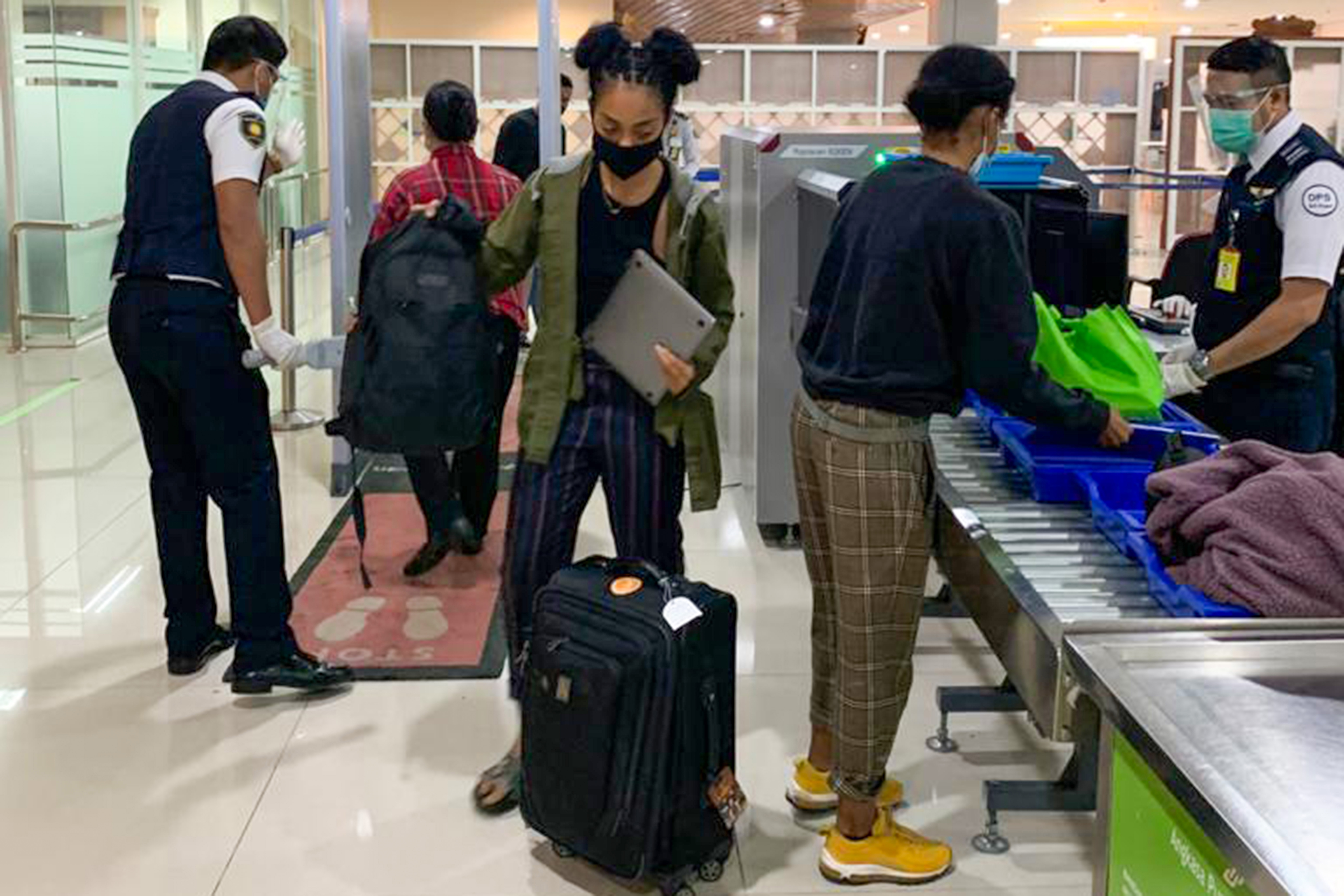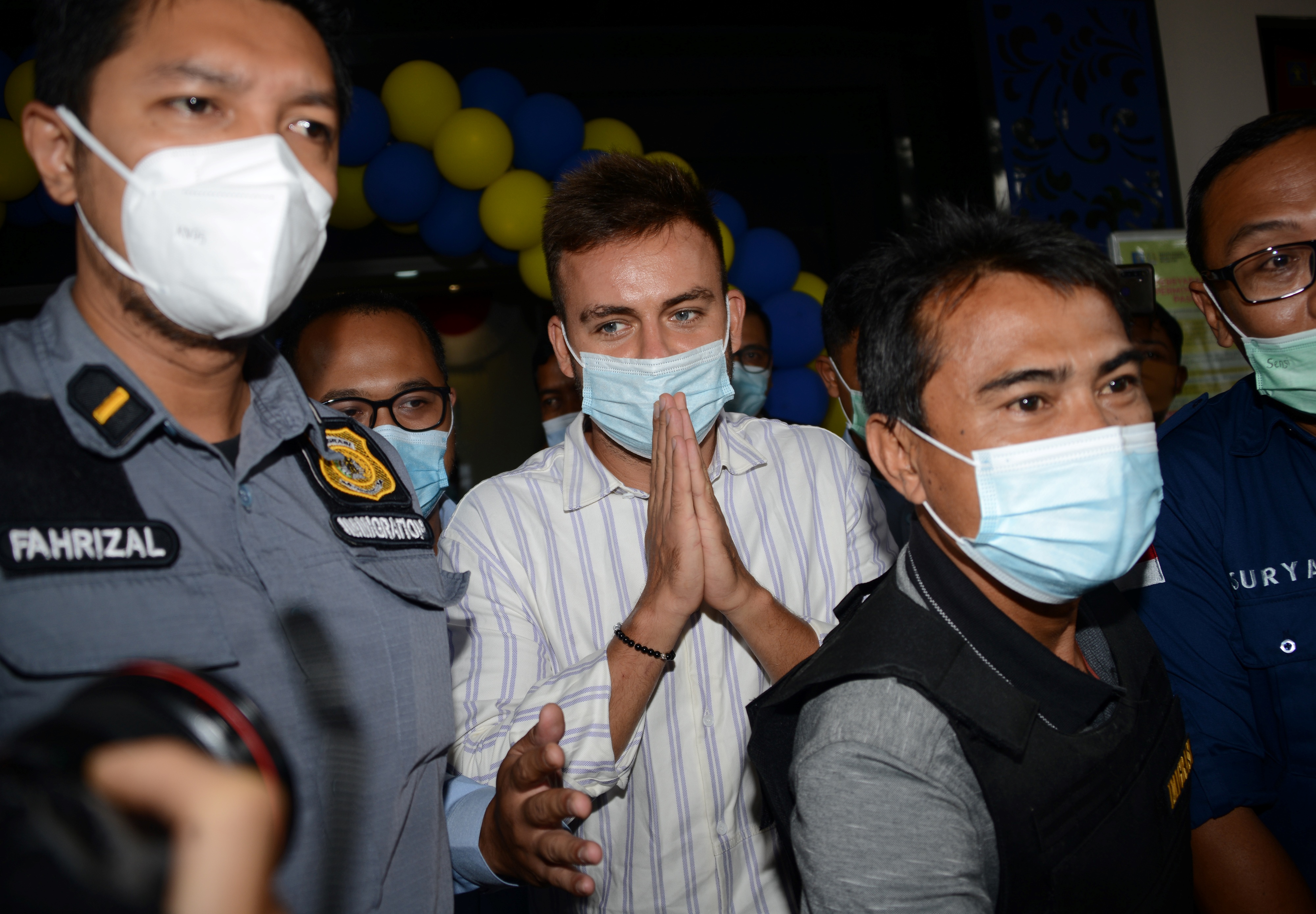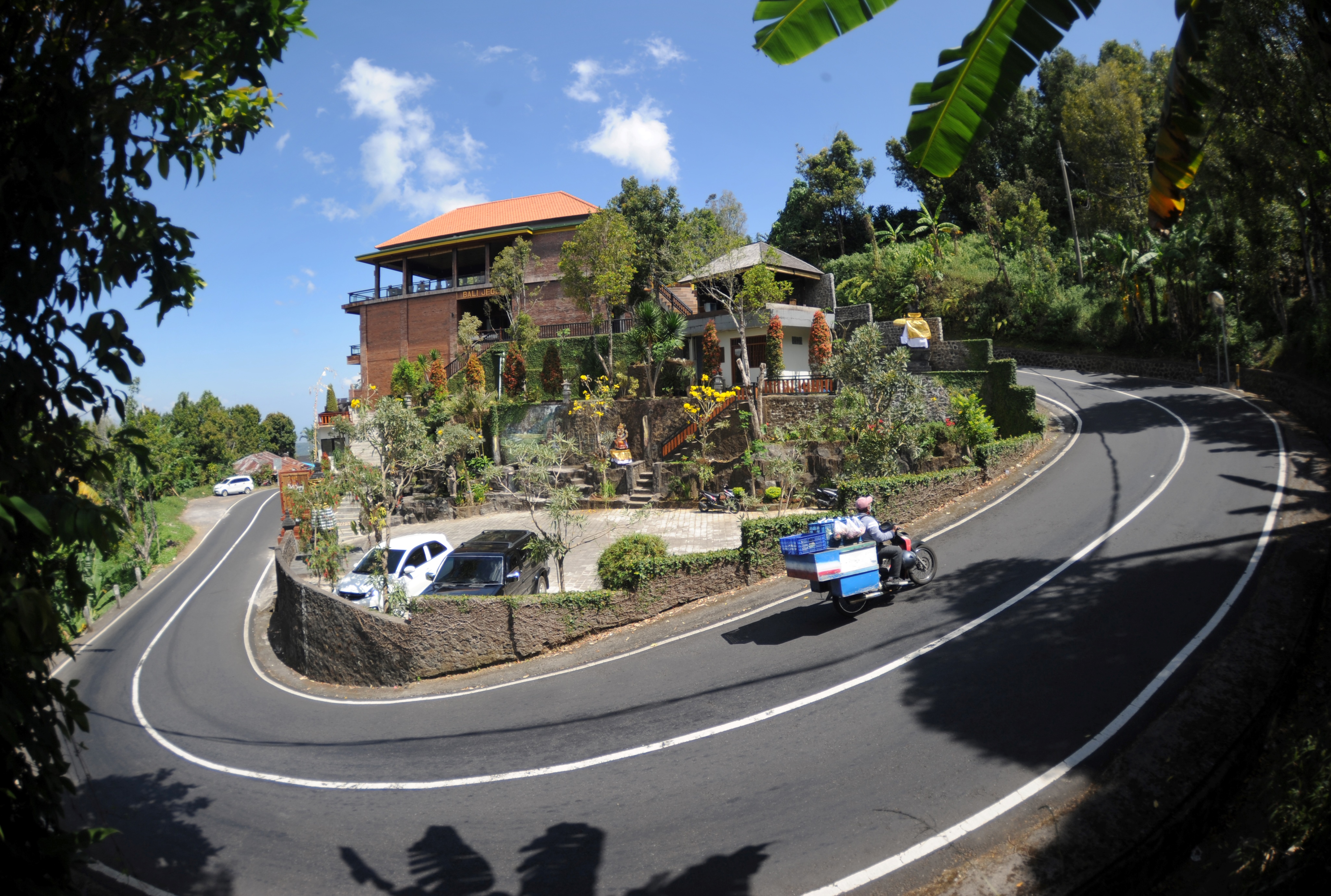Influencers and Expats Are Still Partying Hard in Pandemic-Hit Bali
January 26, 2021Swarms of people dressed for a nightclub gather at the edges of an abandoned skating rink to watch and cheer as skateboarders perform stunts against a backdrop of flashing disco lights.
At another event, a DJ sets the tone for a private rave under a luxurious thatched roof villa where dozens of partygoers dance the night away—not a single face mask in sight.
These were some of the recent scenes from Indonesia’s tourist hotspot Bali, where expats and influencers have continued to gather and party, shrugging at the coronavirus that has ravaged the country.
“Honestly speaking, the local scene here is not that worried about the virus,” one foreign partygoer living in Bali told VICE World News.
“People here are really laid back and easy-going. We’re all still being responsible despite the circumstances but it’s all about common sense, you know?”
Foreigners on the famed Indonesian island have been making headlines lately for flouting public health regulations and flaunting their expat lifestyles at a time when global COVID-19 cases have pushed past two million.
“It seems like most foreigners in Bali don't believe that COVID-19 is real,” Suryanegara, a local police chief stationed in the Badung regency, was quoted as saying. “They don’t pay fines and laugh when we tell them to do push-ups instead.”
“It seems like most foreigners in Bali don’t believe that COVID-19 is real.”
“They shout at my officers and unfortunately, we can't scold them. How can I not be annoyed? It’s a test of our patience.”
The anger bubbled to the surface last week, when 28-year-old American “digital nomad” Kristen Gray was deported from Bali and banned from returning for at least six months. She started a firestorm on Indonesian social media after praising her “elevated lifestyle” and offering to sell an e-book on how to live on the island.
Gray was subsequently accused of violating Indonesian immigration laws (which she denies) and “spreading unsettling information,” including depicting Bali as a queer-friendly place. She in turn accused authorities of discrimination.
But she wasn’t the first foreigner to have been banished from Bali over the course of the pandemic. A Syrian man was deported in June after organizing a mass yoga retreat in the popular tourist town of Ubud. In December, a Russian influencer involved in a motorcycle stunt was found to have “violated COVID-19 health protocols” after Instagram posts showed him among a crowd partying without masks or social distancing. He has since been deported.
Balinese immigration authorities confirmed that 157 foreigners were deported from the island last year compared to 269 people in 2019, when it was much easier to get in and out of Indonesia.
Speaking at a press conference held after Gray’s deportation on Jan. 21, Jamaruli Manihuruk, who heads the local office of Indonesia’s law and human rights ministry, defended the deportations.
“While we have to protect foreigners, we act according to existing provisions when they commit mistakes and apply the same principles to all in Bali,” he told reporters.
“All human beings are equal and no one is above the law.”


Photos obtained by VICE World News showed ongoing evidence of parties, events and mass gatherings continuing to take place in Bali in recent weeks and months, with minimal social distancing measures.
One influencer who spoke to VICE World News on the condition of anonymity said she attended several private parties since arriving in Bali last October and that mask-wearing and other measures were often difficult to enforce.
“Nobody really wears masks at these parties because everyone is either smoking or drinking but you have to have them on you,” she said when asked about content on her Instagram feed.
“But they do check temperatures at the door and have handwashing stations at the entrances. Some even require you to sanitize your hands before entering.”
Even with an ambitious, government-sponsored vaccination campaign now in full swing, Indonesia still remains the worst-hit country in Southeast Asia, with new cases of the virus in the sprawling archipelago nation rising daily by the thousands and expected to hit the 1 million figure by this week. More than 28,000 people have died.
Bali has recorded nearly 24,000 cases to date, leading experts and Balinese virologists to call for stricter lockdowns and to close the island temporarily.
While the influencer who spoke to VICE World News has heard of clusters forming at parties around Bali, she affirmed that the community remained safe due to strict protocols and precautions. “It’s easy to [look at my pictures] and for spreading COVID but honestly, I don’t think it’s the main cause. They aren’t reckless or irresponsible, it’s just the way of life in Bali at the present moment.”
One Australian expat from Darwin, who also spoke on the condition of anonymity because of the sensitivity around the issue, has remained on the island with his partner despite being out of work for months. He suggested the recent bad headlines did not paint a full picture.
“Foreigners have contributed so much of our income to the island and we love Bali as much as the people who were born here,” he said.
“We shouldn’t have to pack up and leave because of a few bad eggs you see in the media or if we choose to let our hair down and live a little during these depressing times.”
Bali’s tourism chief Ida Bagus Agung Partha confirmed that a partial lockdown was now in place on the island until Feb. 8 and said that recent controversies involving foreigners would not affect the local tourism body’s strategy to attract international visitors back.
“It was the bad attitude of a few tourists and will have nothing to do with our tourism strategies,” he said in an interview.

Made famous in the best-selling 2010 novel Eat, Pray, Love, Bali has long been viewed and marketed as an exotic utopia where one can thrive on low-budget luxury while chasing dreams of an idyllic island life.
But for many local residents, the pandemic has exposed lingering concerns over the way the expat community views the island despite the economic benefits they may bring.
“The role of influencers during the current downturn in tourism is essential for business recovery,” said Luh Micke Anggraini, a lecturer and researcher at Bali Dwipa University.
“However, they must also show empathy for the situation we face and respect Indonesian norms and local values when creating and sharing their social media contents.”
Micke, also a tourism business consultant, reiterated the importance of helping maintain the Balinese identity and the island’s public image as a safe tourist destination.
Echoing her views, Balinese writer and editor Eve Tedja said that the episode which played out with Gray opened a Pandora’s box about Bali’s relationship with foreigners.
“Kristen Gray was not the first and only one to have sold e-books on how to move to Bali and build a life here. Thousands of others have already done the same thing and will continue to keep doing so,” she told VICE World News, also highlighting loopholes in the system that allowed some foreigners to treat Bali like a playground.
“Bali is beautiful because of its high tolerance. We accept all kinds of visitors and do not judge people regardless of skin color, sexual preferences or wealth,” she said.
“But every place has its rules and recent events showed us how unprepared our government is for this new type of digital nomad tourism.”
